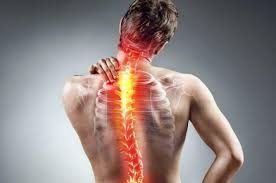Living with chronic nerve pain can have a profound impact on a person’s physical, emotional, and psychological well-being. Understanding the complexities of chronic nerve pain, its causes, symptoms, and various conditions is crucial in addressing its challenges. This article delves into the psychological toll of living with chronic pain, exploring its effects on mental health, daily functioning, and relationships. By discussing coping strategies, self-care techniques, and the importance of seeking professional support, individuals navigating this journey can find proactive ways to enhance their quality of life amidst the persistent challenges of chronic pain.
Understanding Chronic Nerve Pain
Chronic pain is like a nagging roommate who never leaves – it’s persistent, intrusive, and can wear you down over time. Understanding its complexities can help you navigate its unwelcome presence in your life.
Causes and Symptoms of Chronic Nerve Pain
Imagine tiny electrical signals misfiring in your body, causing sensations like stabbing, burning, or tingling that just won’t quit. That’s chronic pain for you – a rebellious orchestra playing the wrong tune.
Types of Chronic Nerve Pain Conditions
From sciatica to diabetic neuropathy, chronic pain comes in various flavors, each with its unique way of making your life a little less comfortable. It’s like a twisted menu you never wanted to order from.
Impact on Mental Health and Well-being
Living with chronic pain is like having a grumpy neighbor who constantly disrupts your peace. Its effects go beyond physical discomfort, seeping into your mental health and overall well-being.
Psychological Effects of Living with Chronic Nerve Pain
Anxiety, depression, and frustration may become your unwelcome companions when chronic pain decides to stick around. It’s like dealing with an unwanted house guest who overstays their welcome.
Challenges in Daily Functioning and Quality of Life
When chronic pain acts up, simple tasks like getting dressed or going for a walk can feel like climbing Mount Everest. It’s like playing a game on hard mode while everyone else is on easy, and the controller is glitching.
Coping Strategies and Self-care
When chronic pain becomes a constant companion, it’s essential to arm yourself with coping strategies and self-care techniques to navigate this bumpy ride with a little more grace.
Physical Therapies and Pain Management Techniques
From acupuncture to heat therapy, there’s an array of options to help manage chronic pain. It’s like finding the perfect playlist to drown out the noise of your unwanted guest.
Mindfulness and Relaxation Techniques
Practicing mindfulness and relaxation can be your secret weapon in the battle against chronic pain. It’s like finding a cozy corner in your chaotic life where you can retreat and catch your breath.
Social and Relationship Challenges
Explaining chronic pain to others and maintaining supportive relationships can feel like navigating a minefield. But with the right strategies, you can foster understanding and connection even during pain.
Communication Strategies for Explaining Chronic Nerve Pain to Others
Describing chronic pain to someone who hasn’t experienced it is like trying to explain color to a blindfolded octopus – challenging, but not impossible. Effective communication can bridge the gap and foster empathy.
Supportive Relationships and Social Connections
Building a network of supportive relationships and nurturing social connections can be your lifeline in the stormy sea of chronic pain. It’s like having a crew that understands the turbulent waters you’re navigating and offers a steady hand.
Seeking Professional Help and Support
Living with chronic pain can take a toll on your mental well-being. Seeking professional help and support is essential in managing this condition effectively.
Role of Healthcare Providers in Managing Chronic Nerve Pain
Healthcare providers play a crucial role in managing chronic pain. They can provide a variety of treatments, medications, and therapies to help alleviate pain and improve quality of life.
Mental Health Support and Counseling Services
In addition to medical treatments, mental health support, and counseling services can be instrumental in coping with chronic pain. Talking to a therapist or counselor can help you navigate the emotional challenges that come with this condition.
Managing Stress and Anxiety
Stress and anxiety often accompany chronic pain, exacerbating the discomfort. Implementing strategies to manage stress and anxiety is key to improving your overall well-being.
Stress Management Techniques for Individuals with Chronic Nerve Pain
Practicing stress management techniques such as deep breathing, meditation, yoga, and mindfulness can help reduce stress levels and bring a sense of calm amidst the pain.
Anxiety Reduction Strategies and Coping Mechanisms
Learning anxiety reduction strategies like cognitive-behavioral techniques and relaxation exercises can empower you to cope with anxiety and regain a sense of control over your mental state.
Maintaining a Positive Mindset
Maintaining a positive mindset can be challenging when living with chronic nerve pain, but it is crucial for your mental health and overall well-being.
Positive Psychology Approaches to Enhancing Mental Well-being
Utilizing positive psychology approaches, such as focusing on strengths, practicing mindfulness, and cultivating optimism, can help enhance your mental well-being and resilience in the face of chronic pain.
The Power of Gratitude and Resilience in Coping with Chronic Nerve Pain
Embracing gratitude for the things that bring joy and practicing resilience in the face of challenges can be transformative in coping with chronic nerve pain. Cultivating a mindset of gratitude can shift your focus towards the positive aspects of life.
Enhancing Quality of Life with Chronic Nerve Pain
Enhancing your quality of life while living with chronic nerve pain involves making lifestyle changes and engaging in activities that bring you happiness and fulfillment.
Incorporating Lifestyle Changes for Improved Pain Management
Making lifestyle changes such as maintaining a healthy diet, staying active within your limitations, and getting quality sleep can significantly impact pain management and overall well-being.
Focusing on Activities and Hobbies that Bring Joy and Fulfillment
Engaging in activities and hobbies that bring you joy and fulfillment can uplift your spirits and distract you from the pain. Whether it’s art, music, gardening, or spending time with loved ones, finding moments of joy can make a significant difference in your quality of life with chronic nerve pain. In conclusion, navigating the psychological toll of living with chronic nerve pain requires resilience, self-care, and a supportive network. By implementing coping strategies, seeking professional help, and maintaining a positive mindset, individuals can empower themselves to manage the impact of chronic nerve pain on their mental health and overall well-being. Remember, while the journey may be challenging, there are resources and strategies available to help individuals lead fulfilling lives despite the presence of chronic pain.















Leave a Reply